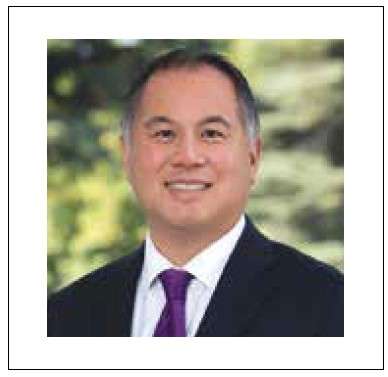Our Historic & Transformative State Budget
By Assemblymember Phil Ting–
Thanks to record-breaking revenues and federal stimulus funds, we can build our state back boldly. As Assembly Budget Chair, I had the opportunity to be a part of putting together a once-in-a-generation fiscal plan—the most transformative in modern history. Highlights include:
Economic Relief
- Golden State Stimulus 2 – Residents with incomes between $30,000 and $75,000 will receive a $600 stimulus check, and families with kids, including ITIN filers, will get an additional $500.
- Renter Assistance – To help low-income renters and small landlords, the budget includes funds to cover up to 100% of unpaid rent and extends the eviction moratorium to September 30.
- Small Business/Nonprofits, Micro-Businesses, Arts and Cultural Venues Grants – There is a total of $4 billion for the Small Business COVID-19 Relief Grant Program, including special grants for micro-businesses and entertainment venues.
K-12 Schools and Early Care
- Child Care, T-K, After-School – We’re on a path toward Universal Transitional Kindergarten, which will be available to all 4-year-olds by 2025; 200,000 more infants and children will have access to subsidized childcare, plus all childcare providers will get a pay raise! The budget also funds expanded after-school programs and state preschool.
- K-12 Public Education- There is record funding for K-12 schools providing about $21,000 for every K-12 student; implements Universal School Meals program. California will be the first state to provide breakfast and lunch to every student regardless of income.
- LGBTQ Support – Teachers will now have more comprehensive training so they can better support LGBTQ students; topics include anti-bullying and harassment policies, as well as how to find target resources.
Higher Education
- UC and CSU – UC and CSU get a 5% ongoing funding increase, and 15,000 more slots will be available to boost enrollment of California students next year.
- Financial Aid Expansion – There are Cal Grants for 133,000 more community college students, and our Middle Class Scholarship program will now cover both tuition and living costs so families won’t have to rely on big loans.
- Higher Ed Facilities/Student Housing – $2 billion will support new facilities and housing for students.
Homelessness
- Record $12 Billion to Address Homelessness – Over the next two years, funding will be distributed to address homelessness, including $1 billion each year to the cities where most of California’s unhoused folks live.
Fighting Poverty and Hunger
- Medi-Cal Age 50+ for All – All income-eligible California residents 50+ years of age will now receive low or no-cost health coverage, regardless of immigration status.
- Seniors, Disabled -The budget increases monthly payments to those living on SSI/SSP and provides better wages to disability service providers.
- Hunger – The application process for food assistance under CalFresh has been simplified, and counties have been given additional funding to staff up for the influx of requests. The program has also been temporarily expanded to include college students.
- CalWORKs- California’s lowest-income families will receive higher monthly stipends and more assistance during pregnancy.
- Foster Care Support – Foster youth 18 to 21 now have access to housing stipends and more financial support for college. Payment to families with foster children is also increased, and California will no longer send our foster children to out-of-state placements.
More
- Wildfire, Drought and Climate Resiliency – Over $7 billion over a few years to address wildfires and the drought, and to support climate resiliency projects.
- Broadband – Broadband access is now an essential need, yet many Californians have limited to no access. To address our statewide digital divide, the budget invests $6 billion over three years to expand and build out broadband infrastructure and improve broadband access.
- Gun Violence Reduction – California’s CalVIP program will receive over $200 million to support gun violence reduction and prevention efforts across the state; there is another $1 million to train law enforcement on how to use Gun Violence Restraining Orders to prevent tragedies.
- API Equity Budget – There is $156 million to combat the alarming rise in hate crimes and incidents against Asian and Pacific Islander community so that more services and resources are available for victims, while also providing education and prevention funds.
- LGBTQ Health – There are increased efforts to fight HIV, viral hepatitis, and other epidemics disproportionately affecting LGBTQ Californians.
Recognizing the inevitability of future economic uncertainty, we put $25.2 billion in reserve accounts and fully paid off state debt for our schools, ensuring a responsible budget.
This budget represents the best opportunity that our state has had to lift families out of poverty and transform the lives of many Californians. I’m proud to have had a hand in crafting this spending plan.
Phil Ting represents the 19th Assembly District, which includes the Westside of San Francisco along with the communities of Broadmoor, Colma, and Daly City.
Published on July 29, 2021

Recent Comments